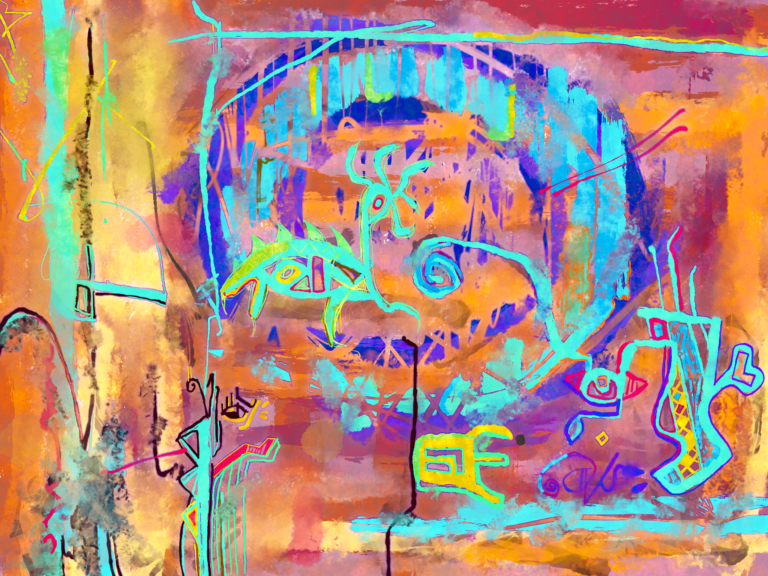 Painted in #TayasuiSketches on iPad, and composited, worked up further and adjusted in #Photoshop. Some of the design is inspired of no particular (or all) #rockart or #folkart. Some of it is expressionist.
Painted in #TayasuiSketches on iPad, and composited, worked up further and adjusted in #Photoshop. Some of the design is inspired of no particular (or all) #rockart or #folkart. Some of it is expressionist.
Dragon Turtle, Snail and Bug
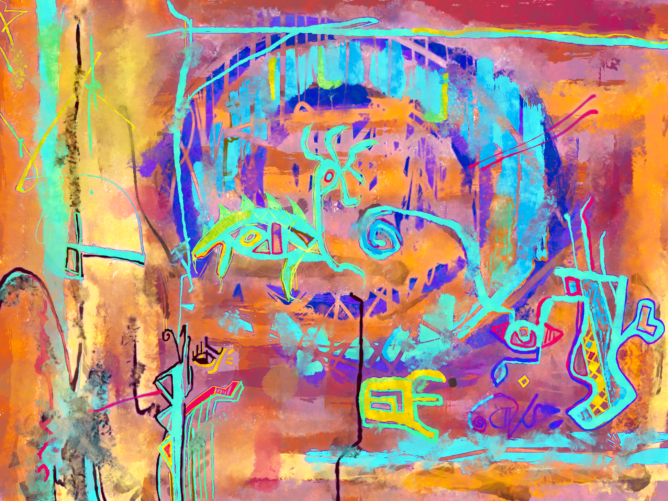

 Painted in #TayasuiSketches on iPad, and composited, worked up further and adjusted in #Photoshop. Some of the design is inspired of no particular (or all) #rockart or #folkart. Some of it is expressionist.
Painted in #TayasuiSketches on iPad, and composited, worked up further and adjusted in #Photoshop. Some of the design is inspired of no particular (or all) #rockart or #folkart. Some of it is expressionist.
Dear streaming film/TV distributors: NETFLIX, VidAngel, Amazon Prime Video, DisneyPlus (and Disney Streaming Services, and Hulu), Apple TV Plus, Vudu (who do? You do–you had it coming), future DC Universe streaming video service, CBS All Access, Sling, HBO Now, YouTube TV, Philo, Playstation Vue, Pluto TV, Fubo TV, FXNOW, Facebook Watch, Acorn TV, Criterion Channel, Sony Crackle, and AT&T Watch TV and/or Direct TV Now, and anyone else I forgot or didn't find:
It's neat that Amazon, iTunes, and Vudu, according to this timely article ;) (did something forward-looking and consumer friendly and) can teleport a purchased content license among themselves, and that some cross-licensing between various services and properties do this already.
But in my opinion, not nearly enough. I think it would be very smart of you all to share streaming licenses for movies (among yourselves) on producer opt-in.
The way things are headed I personally believe you are collectively deflating demand by fragmenting value into silos and reducing consumer choice, primarily for reasons of affordability: the portion of your would-be audience that can not afford to subscribe to 23 or more (!!) different streaming services vastly outnumbers the portion of your audience that can, I would guess. And even for the portion of your audience that can subscribe to all services, it's inconvenient and difficult to try to remember and track what is available where.
Imagine this; I do all the time: I wonder if movie X is on NETFLIX, and learn on searching that they only have titles vaguely related to it–but imagine that instead NETFLIX informed me that they can borrow a copy from any of you (perhaps for a small fee, or if you all work the magic monies problems among yourselves, perhaps for no fee). I opt for that, it opens the teleported streaming media, and starts to play.
Teleporting streaming media licenses among yourselves (that way) would allow your audience to think in the easiest, most convenient and generic term: "My streaming media service," "My streaming TV service," etc.
NETFLIX is nearer to becoming a generic term formerly from a specific brand or type of product/service (like Kleenex or Xerox–hey! Maybe if there's an X in your name it will happen!) than any of the rest of you have any prayer of becoming. People do not want to or care to remember 22+ different brand names that all reduce to "My streaming TV [or movie] service." What they want is convenient access to TV shows and movies, etc.–no matter who provides or whom teleports it from whom.
There are of course huge logistics problems involved with teleporting licenses and content. You would have to standardize and share databases of what you even have, for a start. (NETFLIX has done a lot of work in standards related to film and digital media. They could lead the way. Work with them.) But that would open the door to other things collectively much cooler and profitable to all of you.
1. FANDANGO + KICKSTARTER + STREAMING MEDIA
Imagine this; I did years ago and it mystifies me that it doesn't exist already: A web site where people pledge to buy tickets for a given theatrical screening of a film (meaning at a theater with a very large screen), at a particular theater near them, at a given date and time. If enough people make the pledge, their pledge funds are sent (their cards charged or cryptocurrency transacted or whatever), the theater is booked, the streaming media is sent over a secure internet VPN (or whatever internet infrastructure) to the theater, and at the set date and time the people all go to the theater and enjoy the movie. This would be THE BOMB for parties of people who all are interested in a particular movie or TV show.
This could be incredibly liberating for indie film producers and films that already exist but for whatever reasons didn't get a fair shake in the market, and it would also, probably, perennially re-invigorate already beloved and profitable films and TV shows.
At scale, this could allow independent film-makers to entirely fund a film by crowdsourcing. Further imagine this: a screenwriter/would be producer finishes their screenplay. By whatever magic of fate or influence (this is the great story that all screenwriters wish for and envy when it happens), it really gets attention, a lot of people strongly respond to it. They get an independent cast and crew involved for a spec project and pre-arrange all that would be needed, and they only need the money. To get the money, they put up a speculative screening drive under this "Pledge to see this movie" service. The would-be audience reads the screenplay, and answers the question "Would you pay to see this film?" with a "HECK YES!" (which should be the button, by the way), and pledges their ticket funds (they can optionally pledge additional producer credit or whatever other kickstarter-style perks pledge). Enough fans of the screenplay click that button, and POOF! There's enough pledged seed money available for the producer to tell a bank: hey looks guys the money to repay a loan is literally right here waiting. And/or that pledged money can be a basis for procuring funding from accredited investors, etc.
"Would you see this film?" or "Will you see this film?" screenings could be proposed by anyone: independent film producers looking for an audience for their film, groups of users who wish to organize a screening, etc.
2. More accurate predictive analytics based on an open standard for people sharing what media they like.
Think of it: if any two of you streaming media services got permission from your users to share what they like between those services, you have just multiplied the predictive analytics potential of their "liked" items on one platform by their "liked" items on another platform. You can suddenly get a much more accurate idea of what kind of media to suggest to them, and what kind of programming you might want to produce or acquire for your predictions of what people may like. Do this sharing of liked data among many services, and you have an explosion of utility and potentially accurate predictive analytics.
(Amazon-owned IMDB has mountains of this kind of data, doing virtually nothing useful for anyone, that I know.)
This sharing of likes should be an individual opt-in thing for all your users, by the way.
p.s. NETFLIX: I know, you've already said no to Apple. A customer experience aside: please list _all_ TV shows / series that I am following, not just 7. (My viewing habits jump around a lot.) It's annoying that you presume I'm done or not interested in this or that, and you drop it from the list, and if I forget it, I'll never follow up. I often have to go manually look it up again.
p.p.s Apple: if you require Apple TV to use your hardware and/or iTunes (unbelievably slothful lost-its-soul) bloatware, you will fail. Also, if you are as controlling toward content producers as you are toward developers (you are draconian and overwrought, and I say this as a developer who has submitted apps to your app store), you will irritate creators and drive them away. And I have mixed feelings about reports of your family-friendly content restriction guidelines. On the one hand, it would be a breath of fresh air to see a service tell producers to shut the eff up with their excess edginess. On the other hand, I don't object to all edginess. It depends. You need to make a wise call with it each time.
p.p.s VidAngel: Please get the Studio C and JK Studios crew to record brief shots of themselves uttering minced curses in a variety of intonations and at a variety of angles and lens lengths (full, mid, or closeup), and replace curses in streaming media with these takes of minced curses. This would be HILARIOUS with "The Wolf of Wall Street" and other excessively "edgy" films. Also, shots of Matt saying "Oooh la la!" when naughtiness is skipped.

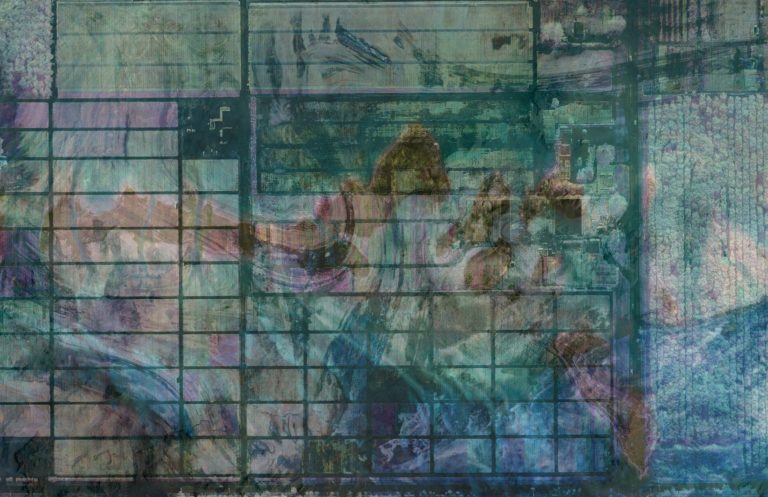
This is one of thousands of images like it (each unique though) I've recently generated with an experimental process. The experiment is a success if I may say so.
This is the process to (potentially) get some way cool procedural images from satellite (or any!) images, accomplished with a new script at https://github.com/earthbound19/_ebArt/blob/master/recipes/diff_avg_supercomposites.sh :
Phase I.
– collect several cool satellite images of civilization and/or wilderness, e.g. from this site: https://earthview.withgoogle.com/
– for every image pair in the collection, make a "diff" image (subtract the RGB values of every pixel in one image from every pixel in the other image), and save the result
– for every image pair in the collection, make an averaged image (average the RGB values of every pixel in one image with another), and save the result
Phase II.
– liberally delete less impressive results
Phase III.
– for every diffed result, average it with an averaged result and save that.
– for every averaged result, subtract (diff) a diffed result.
– liberally delete less impressive results. Good luck–with 17 source images and heavy pruning in Phase II, this will give me 17k+ results, so far all of them compellingly cool.
(Phase IV: sort all results by approx. nearest most similar and string them together in a movie of crossfades to see works between the works.)
(Phase V: accidentally produce glitch art because your computer ran out of hard drive space and memory doing all this, but the processing script keeps calling the utilities that do this, and the utilities break. I'll post some glitch results later).
(Phase VI: realize you have a storage and bandwidth problem for your new many gigabytes of images.)

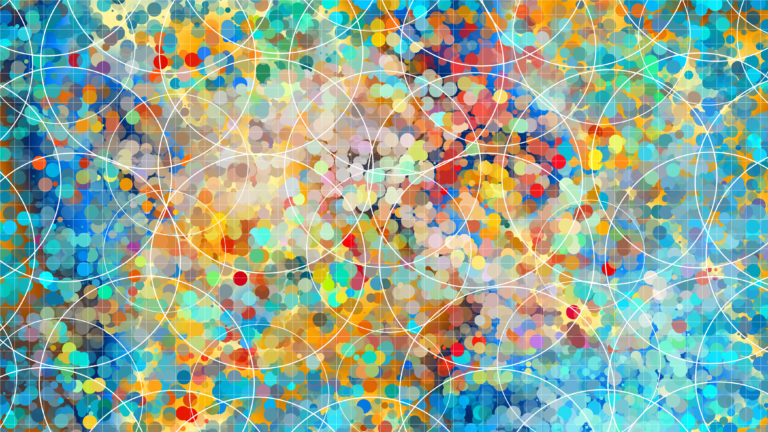
Variant of work 00099.
Base work created by Filter Forge auto-collage filter custom setting. I probably also used a custom variant of the SideToSide filter; that in built up alpha and hue layer variations to produce rectangular hue/tone variety. I might like to call this post-plasticism (after Piet Mondrian's neoplasticism; this is structurally similar but uses any color).
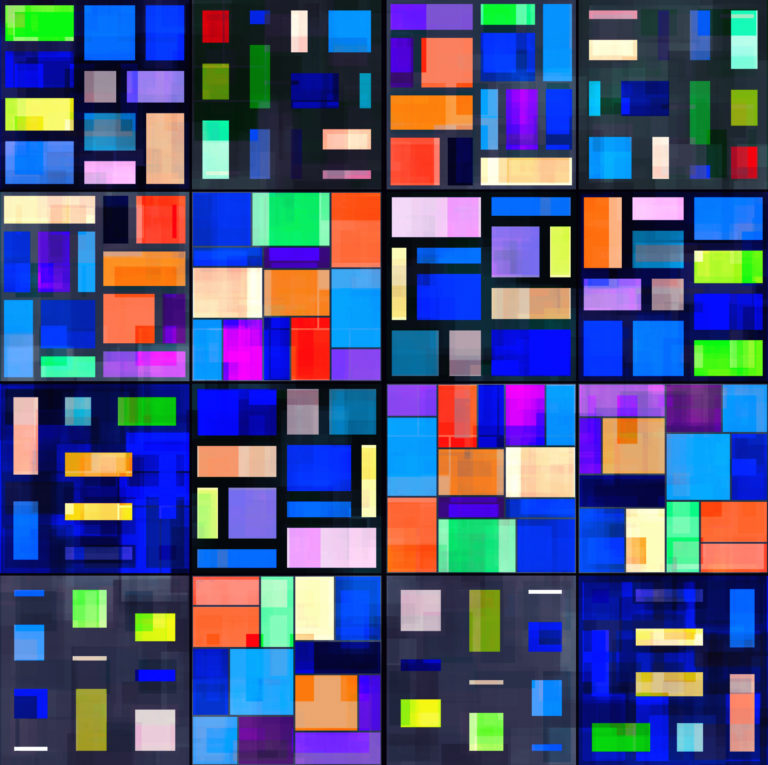
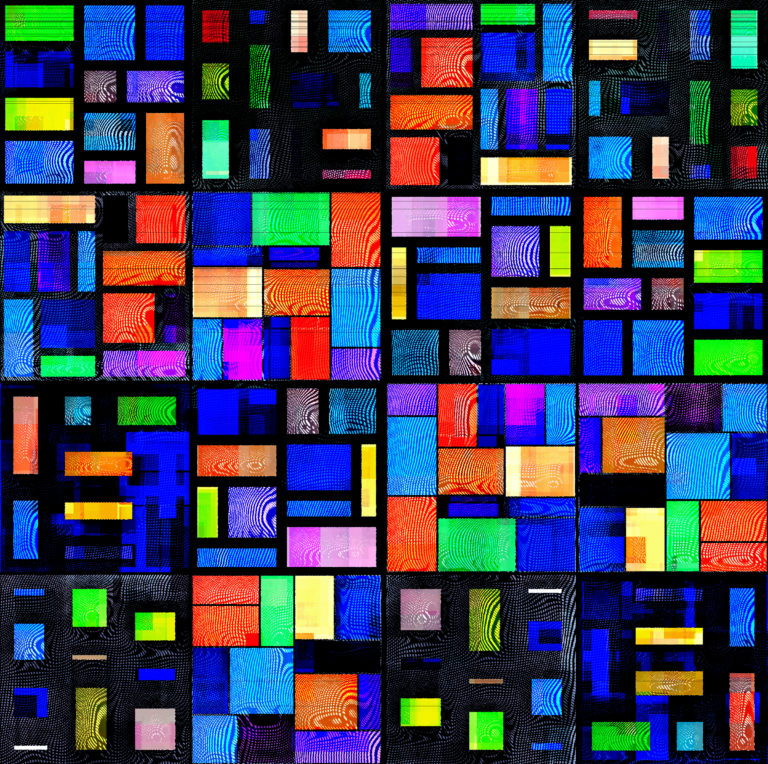
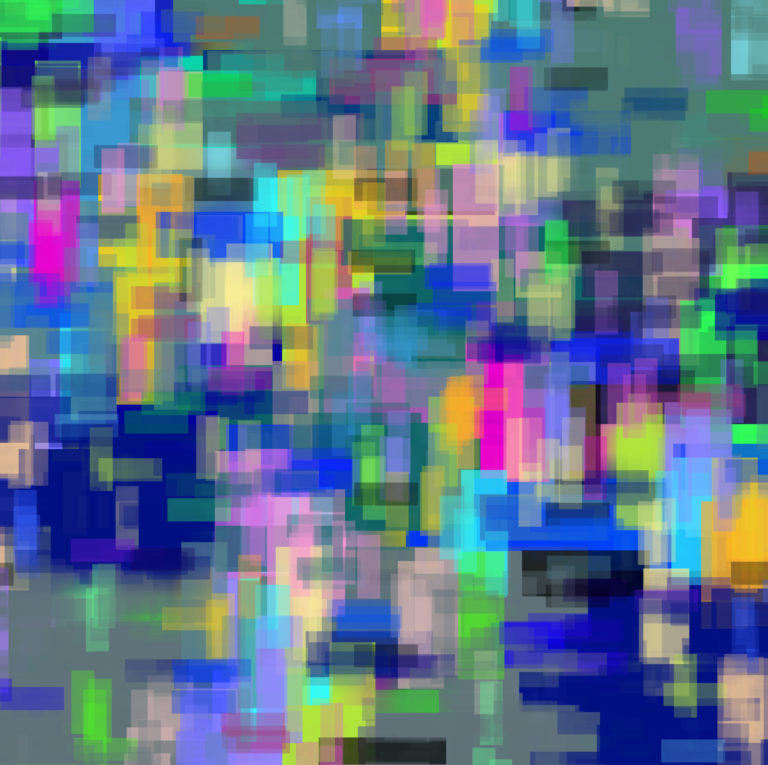
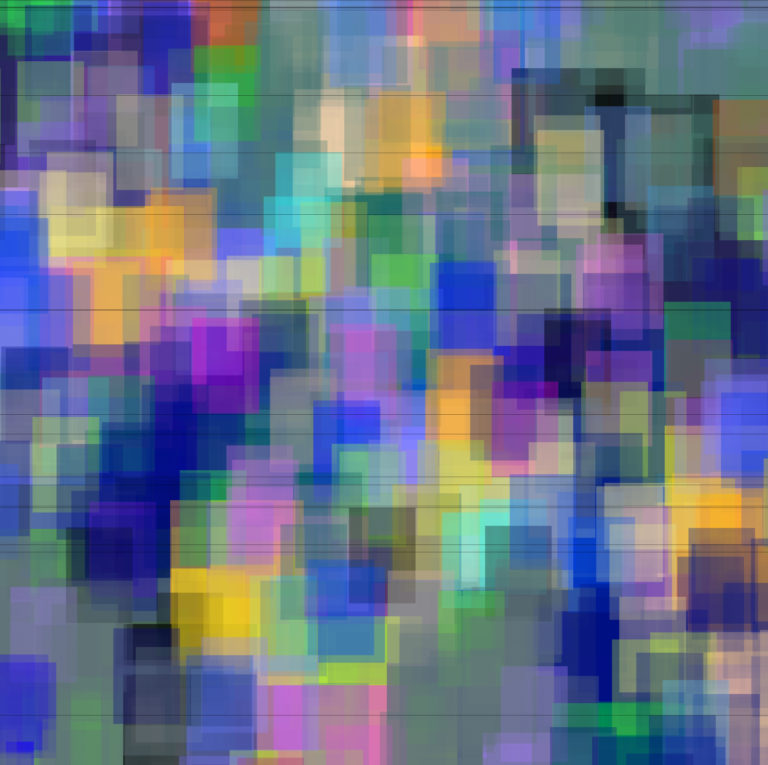
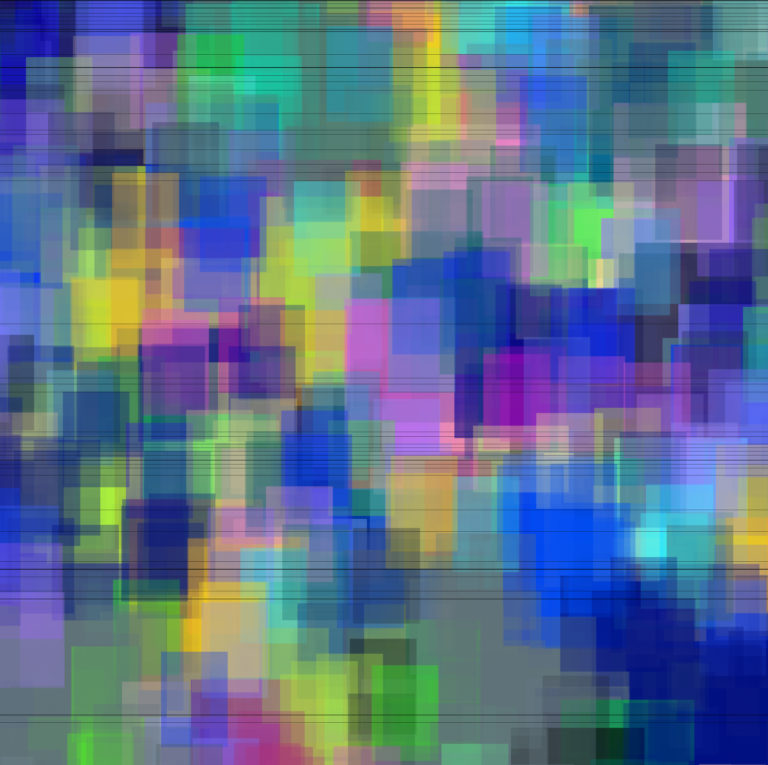
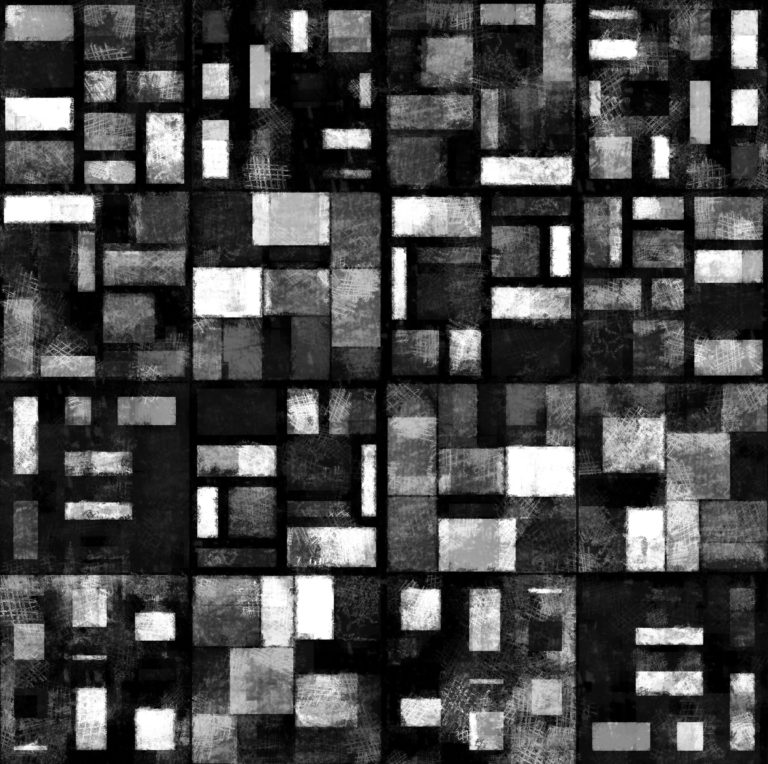
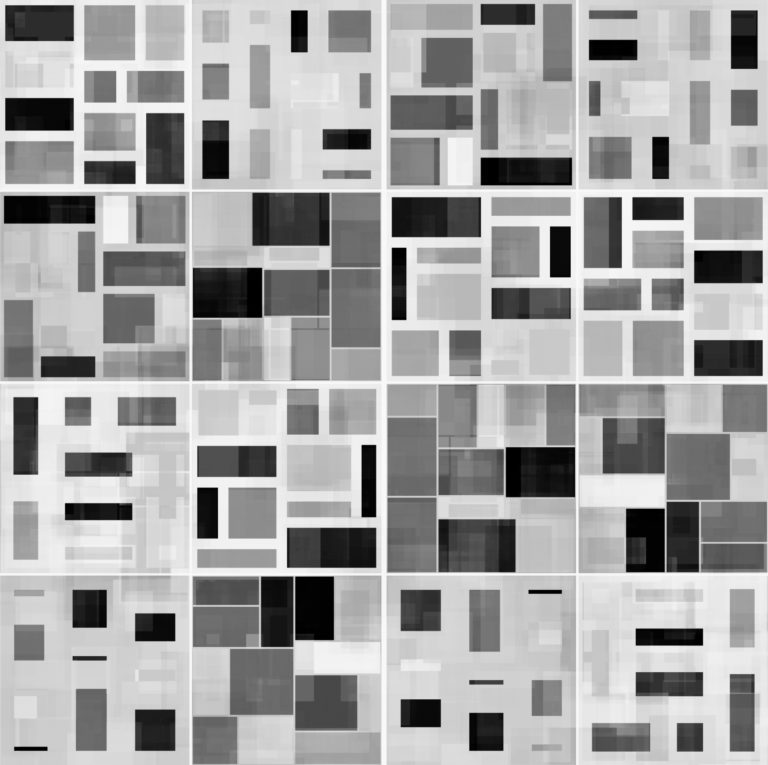
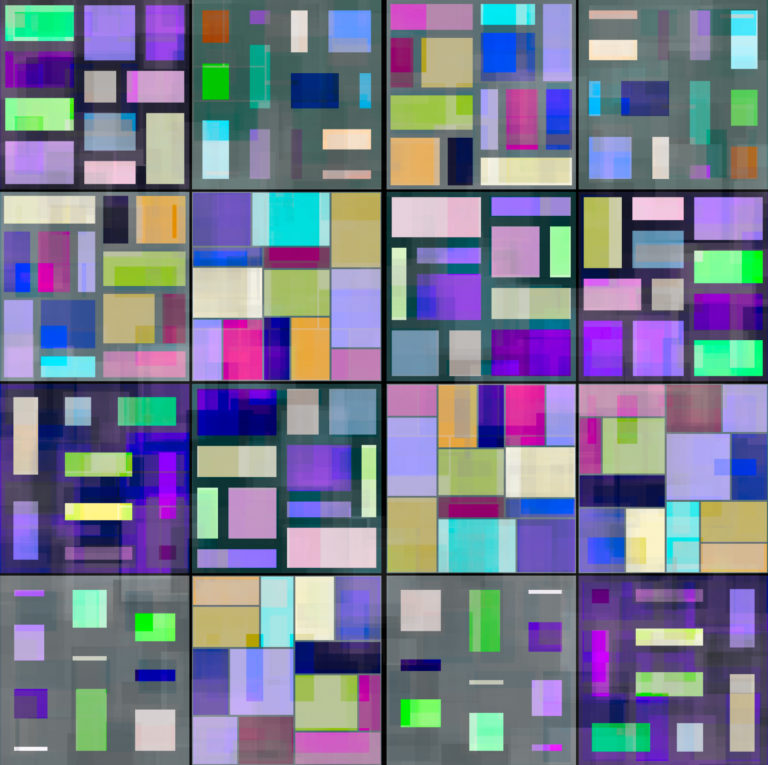
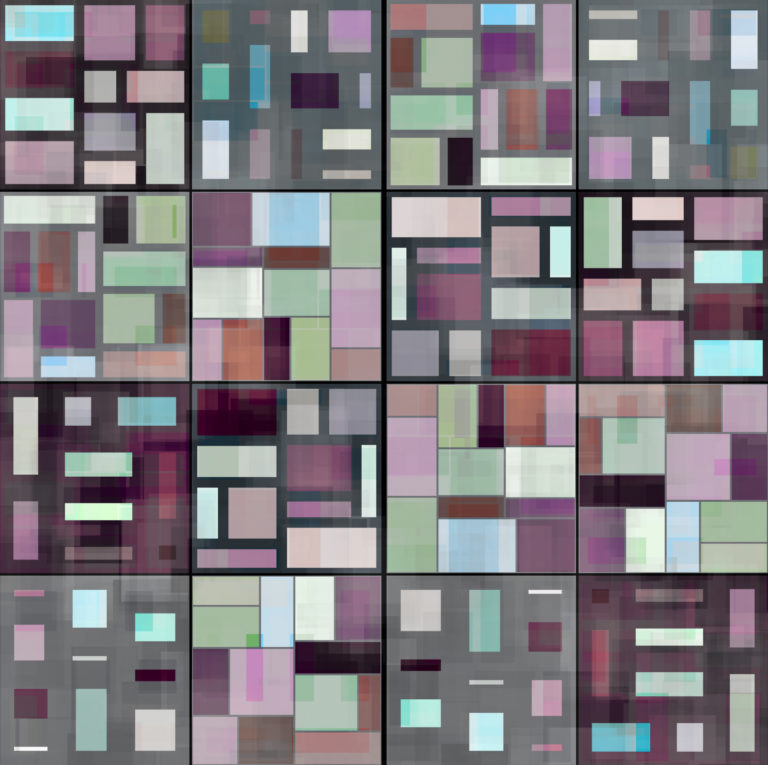
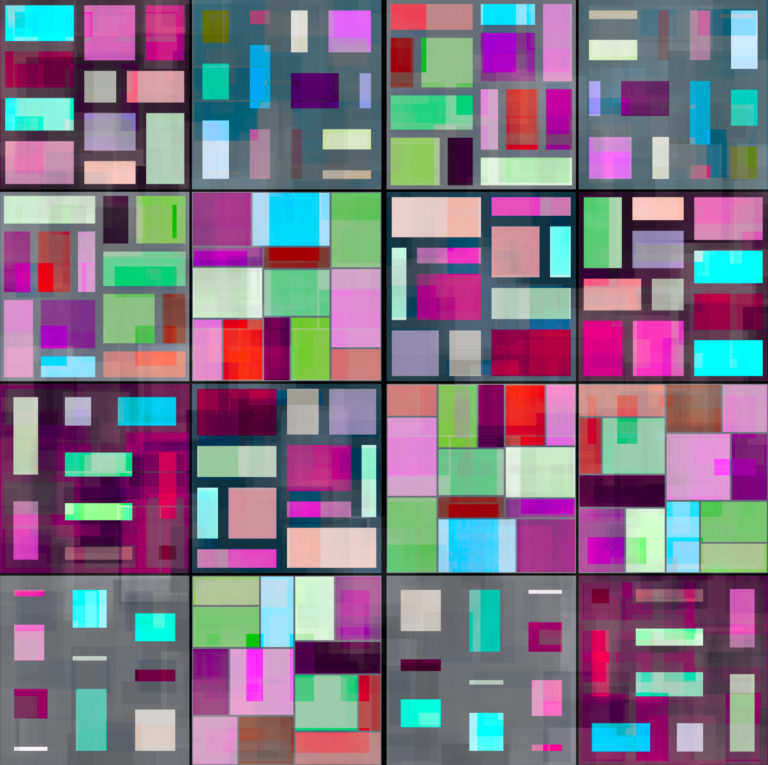
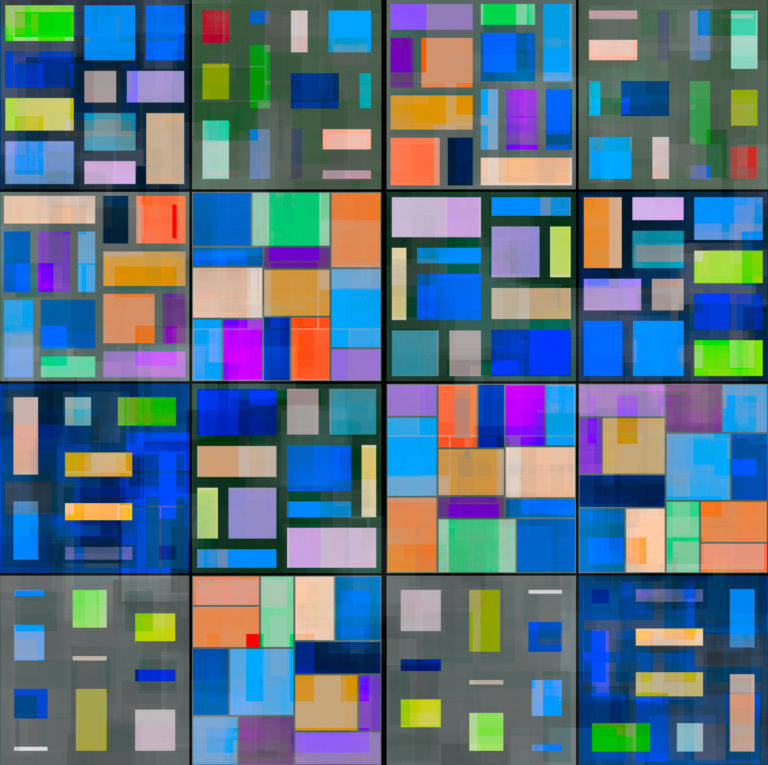
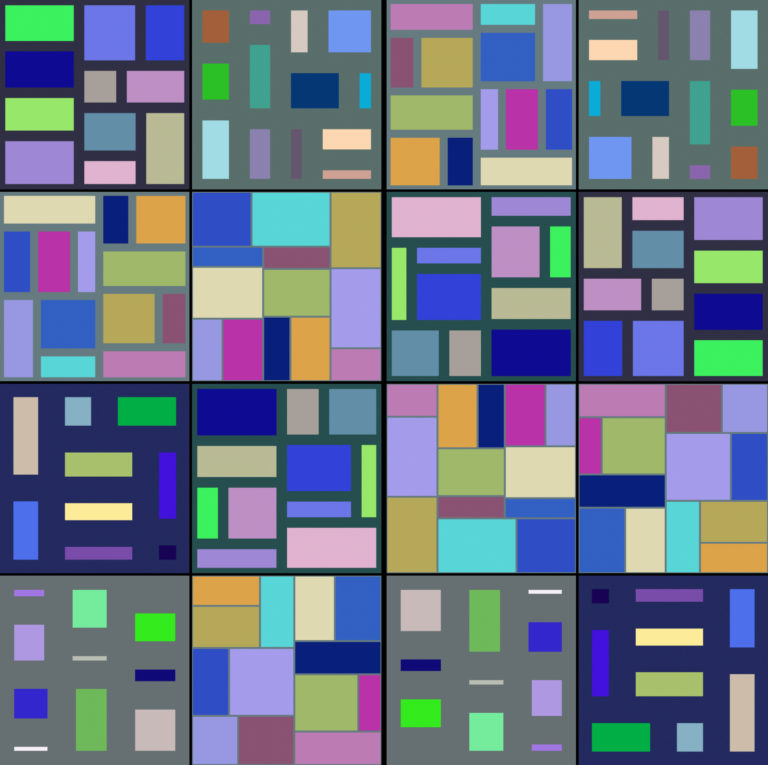
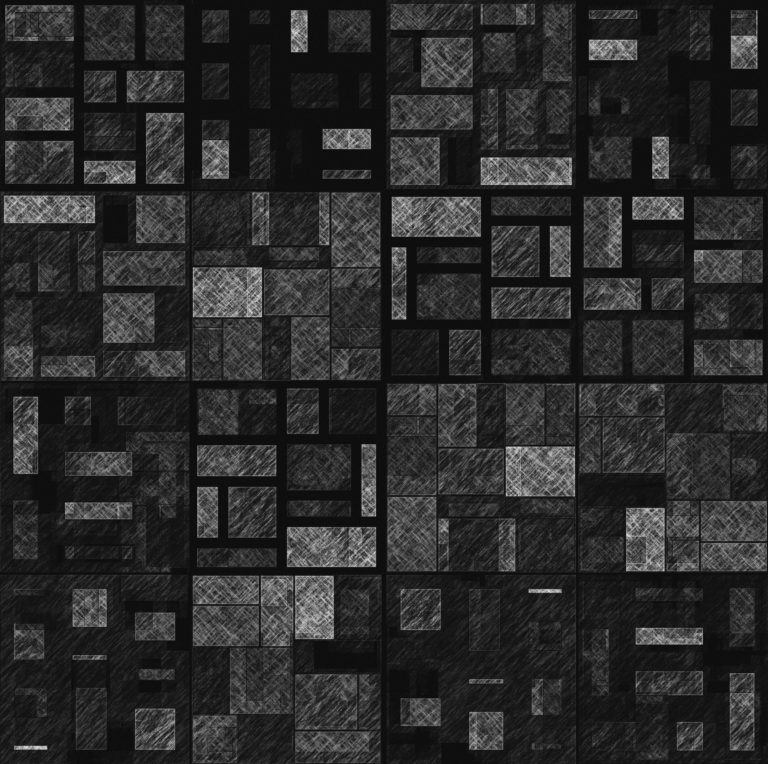
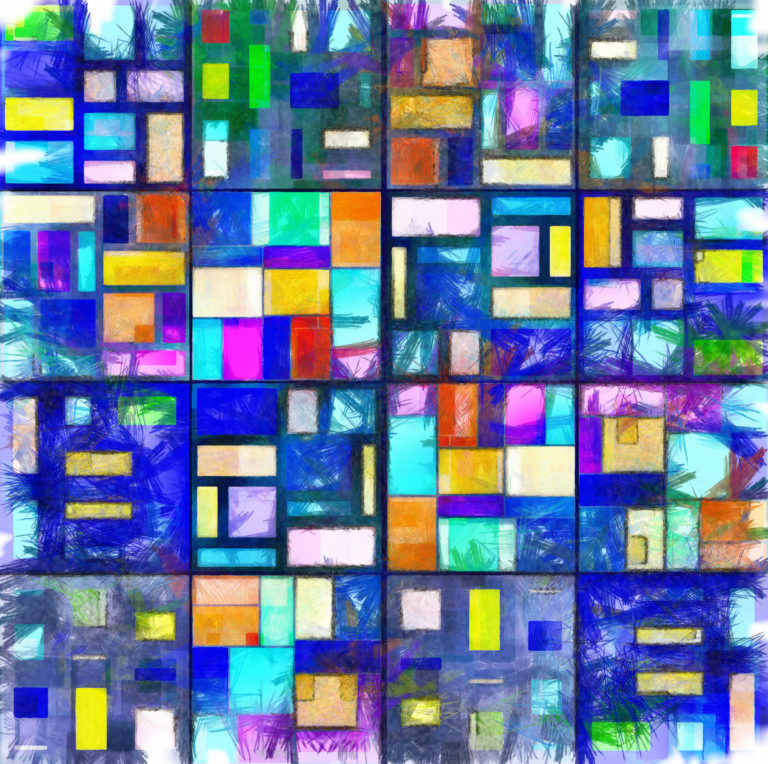
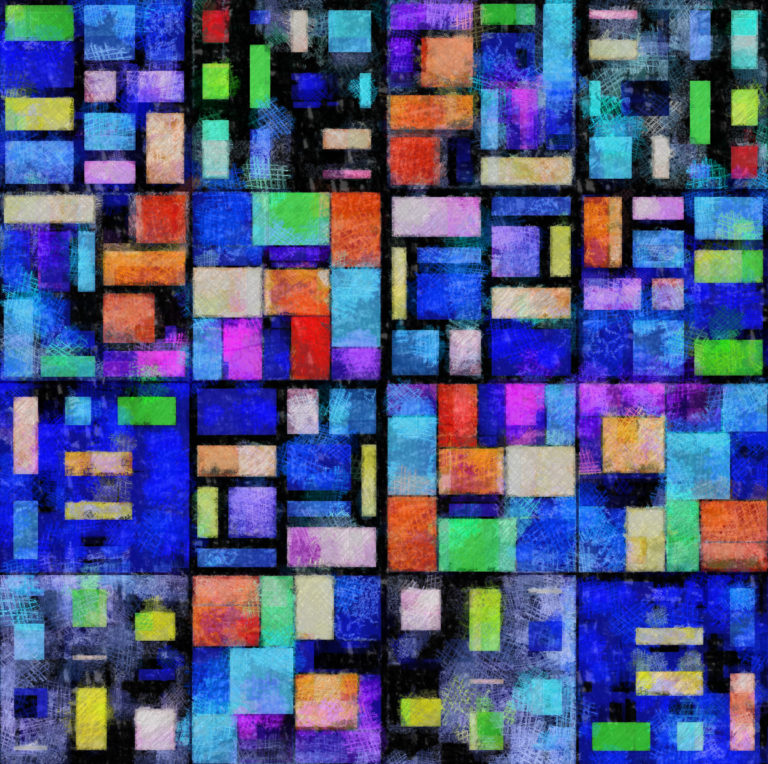
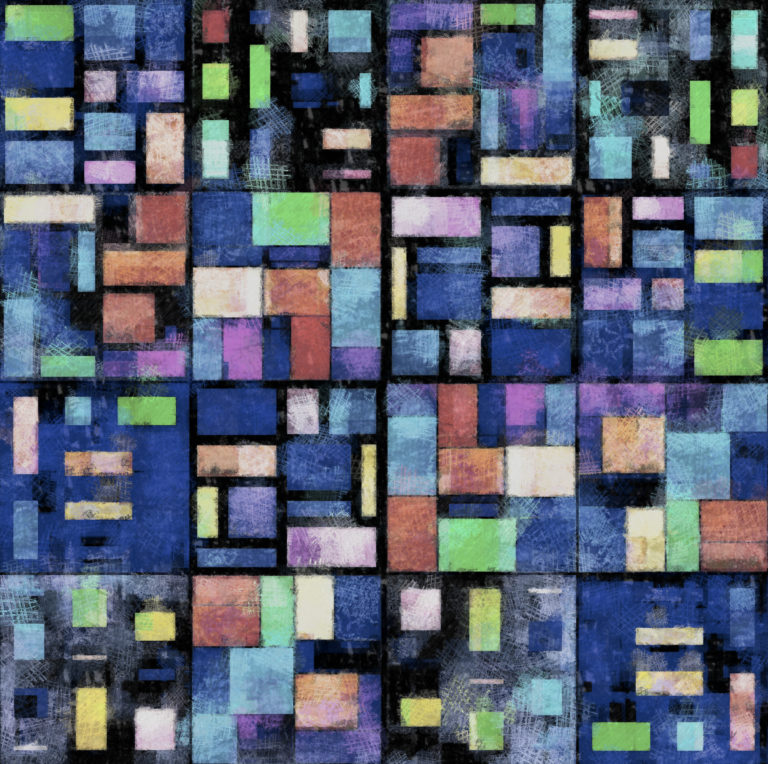
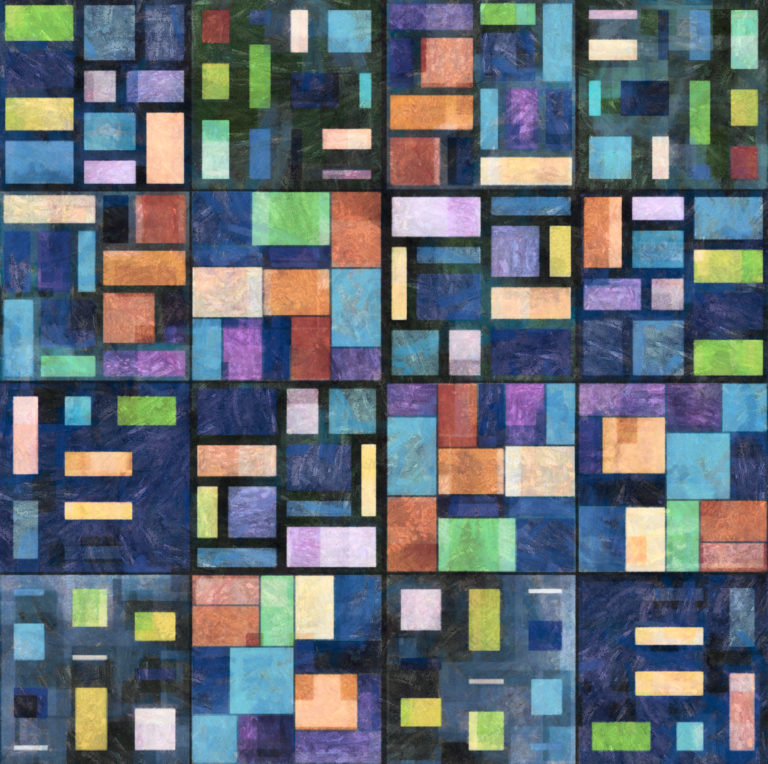
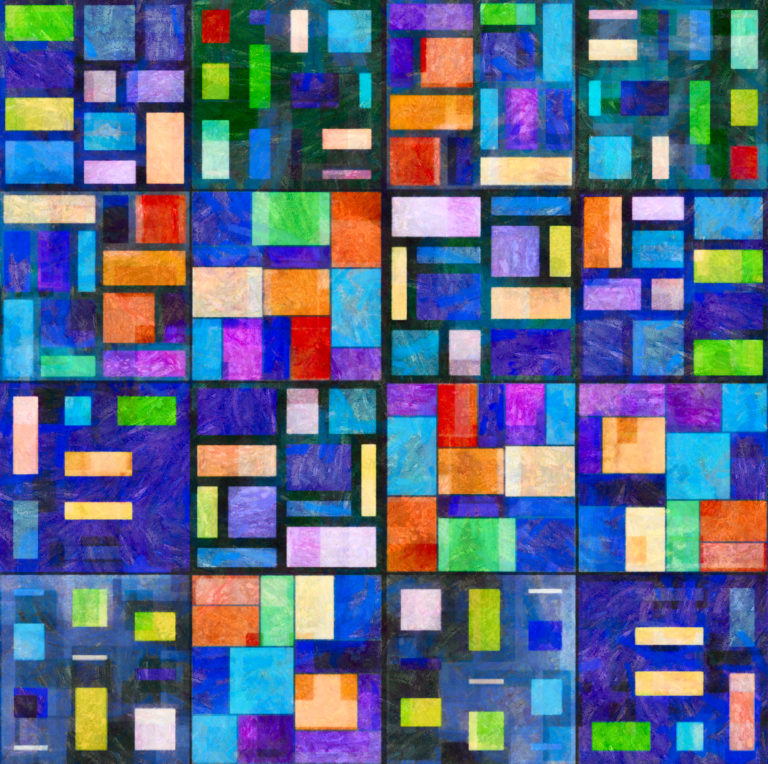

Insert illustration by yours truly, of planet Hebe from the story in subject. The story release announcement post is at this link. The high resolution image (tap or click the below image) is free for personal use.
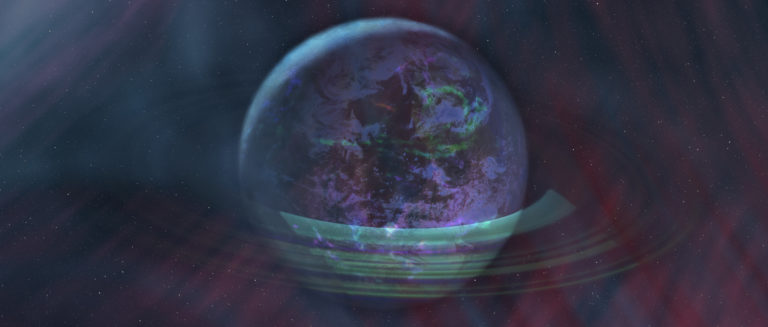
"Narmth" is an invented adjective. The hex color scheme used for the color variants here is at: https://github.com/earthbound19/_ebdev/blob/master/scripts/imgAndVideo/palettes/recreated_palette_00001_narmth.hexplt
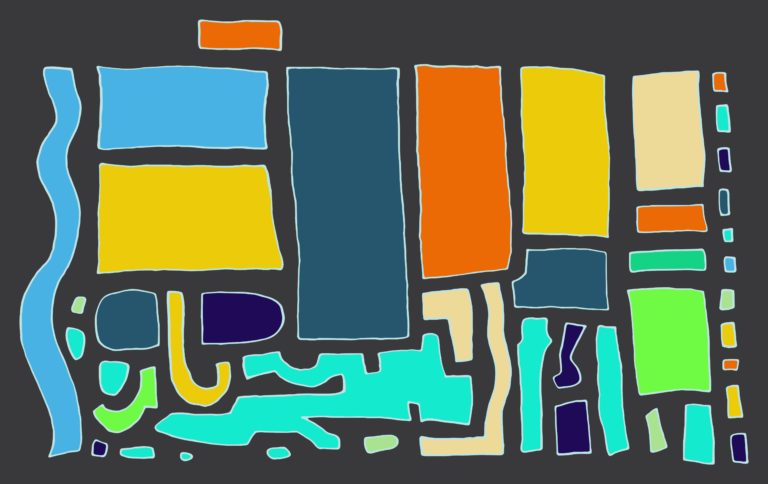
This first is vector art (an svg), which you may save and reuse. You may reuse these works freely under Creative Commons Attribution 4. I'd appreciate credit in reuse.
The animated variant is concieved as unobtrusive decorative video art. Or maybe it would be distracting. I don't know, because I don't know who displays art as such. Do you?
By yours truly. Invented harmonies over original, in instruments like the original chiptune. Original is opening cinematic music from Nintendo Entertainment System game entitled "Blaster Master," which has a lot of fabulous music.
By yours truly.
See http://s.earthbound.io/3y for archive, print and use options.
Pencil decorative lines doodled and scanned, then fixed up.
This animated sequence of variants was accomplished by random selection of colors and fill from the list tigerDogRabbit_HexColors.txt at: http://s.earthbound.io/ColorSchemesHex and these scripts (also from _devtools): potraceAllBMPs.sh, BWsvgRandomColorFill.sh, renumberFiles.sh [svg], allSVG2img.sh, ffmpegAnim.sh.
Tools used: A flatbed scanner, Photoshop, Adobe Illustrator (for svg node reduction while preserving virtually identical appearance), Inkscape, LibreOffice draw, k-meleon (for quick svg previews), cygwin (to enable all of the listed .sh scripts), ffmpeg (to create the video via ffmpegAnim.sh) and svgo_optimize.sh (which has a nodejs and svgo module dependency; you can also just use the SVGOMG web service (do a web search–you can use it to optimize an svg and prepare it for use by BWsvgRandomColorFill.sh).
~
A hoity-toity robot talks about this work at http://s.earthbound.io/artgib

What do you see in the base variant? What I see in the following three variants? Something else?



Next post: a color-animated variant.
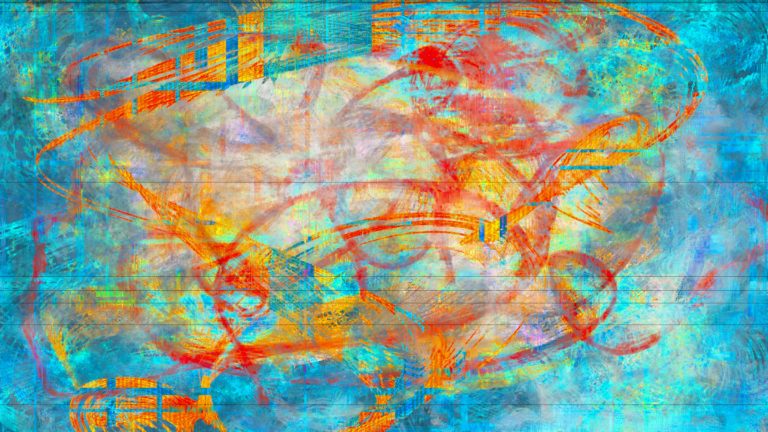
The swirling strokes in this were achieved with the liquid ink pine preset in Corel Painter 2016. Tap or click image for ~2K resolution, free for personal use. Here's a link to prints and merchandise available at pixels.com, and another link to prints available at ImageKind at up to ~ 35" x 56".
The following variant and resource images which I made along the way, I release into the Public Domain:
Variant via the Filter Forge "side to side" filter by Skybase:
An alpha resource via the Filter Forge Terrain Hightfield Generator by LigH; I used this (and variants of it) as a transparency channel in filter layers to make uneven interesting application of filters: